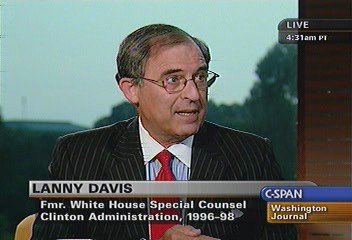
On Monday, Senator John Kerry of Massachusetts, a decorated combat veteran of the Vietnam War, caused a firestorm of finger-pointing and posturing from the Bush White House and Congressional Republicans when he inadvertently omitted some key words from a scripted one-liner at a rally for college-aged Democrats in California. Having intended to poke at the president with the following:
Do you know where you end up if you don’t study, if you aren’t smart, if you’re intellectually lazy? You end up getting us stuck in a war in Iraq. Just ask President Bush.
Kerry instead flubbed:
You know, education, if you make the most of it, you study hard, you do your homework and you make an effort to be smart, you can do well. If you don’t, you get stuck in Iraq.
Apparently willing to turn a blind eye to the irony of George W. "The Decider" Bush and his supporters criticizing anyone for poor public speaking skills or mangled syntax, the GOP jumped on Mr. Kerry's gaffe with enthusiasm, whipping themselves into a froth of outrage and demanding that the Bay State's junior senator "apologize to the troops" for implying that members of the armed forces are uneducated. White House Press Secretary Tony Snow claimed it was an "absolute insult," and House Majority Leader John Boehner and Senator John McCain piled on. Keith Olbermann's report on the manufactured crisis is below:
Leaving aside for a moment the somewhat ridiculous contention that a former military man would essentially be insulting himself if Republican assertions were accurate, as can be seen in the video, Senator Kerry is clearly talking about President Bush, and not military personnel. Nonetheless, after initially striking back hard at his critics from across the aisle, Mr. Kerry swallowed his pride and apologized directly to the troops for any insult he may have caused, loathe to be the source of traction for Republicans so close to the mid-term elections.
As usual, what was lost in the scramble for political points was what actually mattered: Even if Senator Kerry had really intended to insult our men and women in uniform, it changes nothing; Mr. Kerry is not on the ballot, and the policies of the Bush Administration in Iraq continue to be an unqualified disaster, with soldiers on the ground now stating that they believe it may be decades before the country is stable. As General Wesley Clark and a number of Iraq War vets remind us in a new ad, it is all about Iraq, not about poorly-delivered jokes from John Kerry:
While Mr. Kerry's comments weren't, in fact, about the troops, it is fair to say that anything about Iraq and, for that matter,
Afghanistan, really
is also about the people who risk their lives for this country - just not in the way that the current iteration of the Republican Party would have us believe. While America's armed forces have been a handy prop for scoring meaningless points against political opponents and as a backdrop for
presidential photo ops, the reality of this administration's treatment our men- and women-at-arms is truly appalling.
The cutting of veterans' benefits has been an ongoing effort by the Bush Administration for most of its tenure at
1600 Pennsylvania Avenue, with no single incident better representing that fact than the
statement by the
Pentagon's Undersecretary for Personnel and Readiness, David Chu, that:
The amounts [paid in veterans' benefits] have gotten to the point where they are hurtful. They are taking away from the nation's ability to defend itself.
So, while Air Force leadership can, with a straight face,
request $50 billion in "emergency funds" - an amount equal to roughly half it's annual budget next year - genuine emergencies that affect service members on an individual basis aren't addressed with additional money, but by
plundering accounts that pay for their healthcare and other benefits.
And make no mistake: veterans need those benefits. It has gotten so bad, in fact, that
the number of military households relying on charitable donations of food is growing alarmingly each month. Some families are now so deeply in debt that the affected servicemen and -women themselves are deemed security risks, and
barred from overseas service.
Perhaps even worse than the way in which living members of the armed forces are treated however, is the crass manner in which those killed in action are dehumanized to bolster the
posturing machismo of our Commander-in-Chief and his followers. The war dead are hidden away - the president having
expressly forbidden photographing flag-draped coffins returning to U.S. soil - never to be discussed as other than faceless statistics, and with any attempt to memorialize the fallen as more than mere grist for the Bush foreign policy war machine
derided as unpatriotic.
To fully grasp the utter contempt this administration has for our troops, one need only revisit the story of
Pat Tillman, the safety for the
NFL's
Arizona Cardinals who spurned a lucrative contract to volunteer for the
Rangers and serve in Afghanistan after
9/11. By
most accounts, Tillman was no right-wing zealot, but he came from a family of soldiers, and had a need to experience things firsthand. A natural leader who won the respect of those around him, he acquitted himself well in the Army, and his story was one to which the backers of the War in Iraq pointed as an example of the type of selfless patriotism they hoped to see from the rest of us.
When Pat Tillman was killed in 2004, the nation bowed its head when we were told he had died bravely in battle, and the former defensive back was posthumously awarded the
Silver Star. Later, however - after a
memorial service that was milked for all the flag-waving propaganda it could generate - we learned that he had actually died in a friendly fire incident, killed by American troops.
The Army had known that fact almost immediately, but suppressed it until after the service, so when its subsequent investigation determined that Tillman's death was accidental and unavoidable, Pat's mother, Mary, smelled a rat and began digging on her own. She has been digging ever since, and it is to her credit - and the eternal disgrace of military leadership - that, last March, the Inspector General's office pressed the Army into opening a
fifth investigation into the circumstances surrounding the death of her son. Her words put it best:
They tried to attach themselves to his virtue; then they wiped their feet with him.
Next week brings us both the mid-term elections on November 7th, and Pat Tillman's birthday on the sixth. With those thoughts weighing on his mind,
Kevin Tillman, Pat's brother and fellow professional athlete-turned-Ranger, wrote a
searing and passionate letter that reminds us what has really taken place behind all of the rhetoric and posing for the cameras:
Somehow those afraid to fight an illegal invasion decades ago are allowed to send soldiers to die for an illegal invasion they started.
Somehow faking character, virtue and strength is tolerated.
Somehow profiting from tragedy and horror is tolerated.
Somehow the death of tens, if not hundreds, of thousands of people is tolerated.
Somehow subversion of the Bill of Rights and The Constitution is tolerated.
Somehow suspension of Habeas Corpus is supposed to keep this country safe.
Somehow torture is tolerated.
Somehow lying is tolerated.
Somehow reason is being discarded for faith, dogma, and nonsense.
Somehow American leadership managed to create a more dangerous world.
Somehow a narrative is more important than reality.
Somehow America has become a country that projects everything that it is not and condemns everything that it is.
Somehow the most reasonable, trusted and respected country in the world has become one of the most irrational, belligerent, feared, and distrusted countries in the world.
Somehow being politically informed, diligent, and skeptical has been replaced by apathy through active ignorance.
Somehow the same incompetent, narcissistic, virtueless, vacuous, malicious criminals are still in charge of this country.
Somehow this is tolerated.
Somehow nobody is accountable for this.
In a democracy, the policy of the leaders is the policy of the people. So don’t be shocked when our grandkids bury much of this generation as traitors to the nation, to the world and to humanity. Most likely, they will come to know that “somehow” was nurtured by fear, insecurity and indifference, leaving the country vulnerable to unchecked, unchallenged parasites.
Luckily this country is still a democracy. People still have a voice. People still can take action. It can start after Pat’s birthday.
As we near election day, please take time to think about the families of servicemen dependent on donated food and crushed by debt. Think about the deaths of human beings that have been manipulated for political gain, and then thrown aside when they are no longer useful. Think about men who have served their country and men who have not. Think about deeds that matter and words that don't, and think about who should be apologizing to whom.
Hold onto Kevin Tillman's words when the people who have twisted and damaged our nation would have you look not at their ineptitude, but at the meaningless, the trivial and the unimportant. Hold onto his words when
those who seek to avoid accountability pretend to righteousness in the face of shifting poll numbers and the stench of hubris and stupidity revealed. Above all, hold onto these words when you cast your vote next week, and hold onto them as we work to repair the damage inflicted by men and women who have done nothing to justify their occupation of the offices they currently hold or the influence they wield.
And when you are done voting, hold onto these words still; for Pat Tillman, for Kevin Tillman, for Mary Tillman, and for
all the other families like them. Hold onto them so that we can help ensure that "somehow" doesn't happen again.








